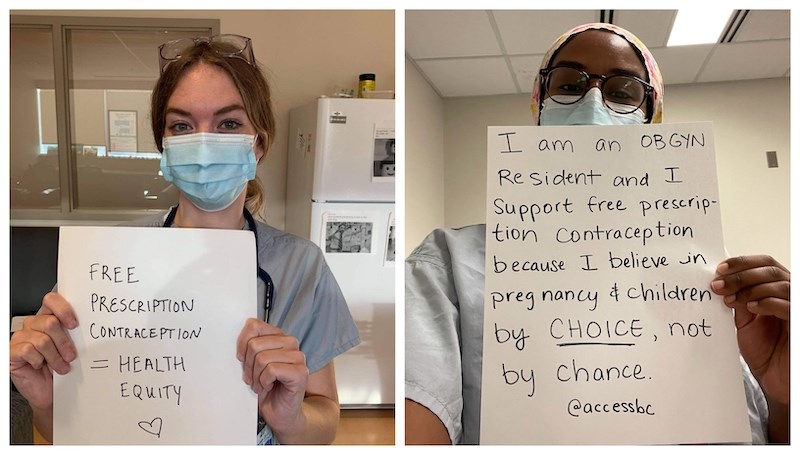Citing the recent overturning of Roe v. Wade in the United States, a large B.C. student organization is joining a public campaign to hold B.C.'s New Democrats to account for its campaign promise of making contraception free for B.C. residents.
The BC Federation of Students says it has endorsed the AccessBC Campaign, calling on the provincial government to fulfill its 2020 election promise to make all prescription contraception fully taxpayer subsidized.
Making the issue more pressing is the erosion of abortion rights in the United States stemming from last month’s U.S. Supreme Court decision striking down of the historic Roe vs. Wade case that had established constitutional rights to abortion.
“After the devastating news about the overturning of Roe v. Wade in the U.S., many B.C. politicians reaffirmed their commitment to supporting abortion rights, but more needs to be done,” said Melissa Chirino, chairperson of the BC Federation of Students, in a statement July 21.
“People in B.C. continue to face barriers when trying to access something as basic as contraception, and everyone should have access to free contraceptives without any barriers.”
Currently, according to the federation, an intrauterine device (IUD) can cost $75 to $380, oral contraceptive pills can cost $20 per month, hormone injections as much as $180 per year, and an implant can cost $350.
“These costs are a significant barrier to accessing contraception for many people in B.C. and fall disproportionately on women and people who can get pregnant. Cost is a particularly significant barrier to young people and people from marginalized communities,” stated the federation.
“Students are already struggling to keep up with the sky-rocketing costs of living coupled with the cost of attending post-secondary education,” said Tashia Kootenayoo, the federation's secretary-treasurer.
“Access to free contraception allows struggling students to make one less difficult decision: food or contraception,” added Kootenayoo.
The federation, representing students in 15 small and mid-size campuses in B.C., claims universal no-cost prescription contraception is revenue positive, citing a 2010 study from Options for Sexual Health. It estimated for every $1 spent on contraceptive support for a woman, up to $90 in public expenditure on social supports can be saved.
AccessBC says when the U.S. state of Colorado implemented a program offering free IUDs to women (43,713 at a cost of $28 million), the program reduced teen pregnancies by 54% and teen abortion rates by 64% over the course of eight years, and saved the government an estimated $70 million.
The Canadian Medical Association, the Society of Obstetricians and Gynaecologists of Canada and the Canadian Pediatric Society also endorse such a plan.
“Free prescription contraception is an amazing policy; it improves health outcomes for mothers and infants, makes life more affordable, increases equality, and will save the government millions, and this policy is long overdue,” said Teale Phelps Bondaroff, chair and co-founder of the AccessBC Campaign in the federation’s statement.
In 2020, the BC NDP stated: “Cost should not prevent individuals, particularly young people, from their right to make choices about their reproductive health. While condoms can be easily found for little or no cost, and vasectomies are covered under MSP, prescription contraception is not covered. It’s time to make contraception free for all.”
Glacier Media has reached out to Minister of Health Adrian Dix for comment on government’s progress on the matter.



